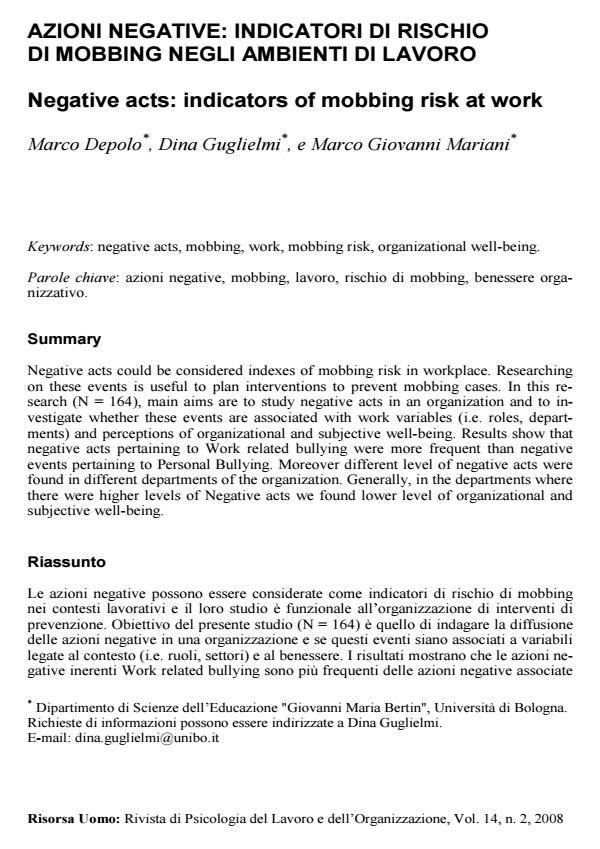Negative acts: indicators of mobbing risk at work
Titolo Rivista RISORSA UOMO
Autori/Curatori Marco Depolo, Dina Guglielmi, e Marco Giovanni Mariani
Anno di pubblicazione 2008 Fascicolo 2008/2
Lingua Italiano Numero pagine 18 P. 189-206 Dimensione file 114 KB
DOI
Il DOI è il codice a barre della proprietà intellettuale: per saperne di più
clicca qui
Qui sotto puoi vedere in anteprima la prima pagina di questo articolo.
Se questo articolo ti interessa, lo puoi acquistare (e scaricare in formato pdf) seguendo le facili indicazioni per acquistare il download credit. Acquista Download Credits per scaricare questo Articolo in formato PDF

FrancoAngeli è membro della Publishers International Linking Association, Inc (PILA), associazione indipendente e non profit per facilitare (attraverso i servizi tecnologici implementati da CrossRef.org) l’accesso degli studiosi ai contenuti digitali nelle pubblicazioni professionali e scientifiche.
Negative acts could be considered indexes of mobbing risk in workplace. Researching on these events is useful to plan interventions to prevent mobbing cases. In this research (N = 164), main aims are to study negative acts in an organization and to investigate whether these events are associated with work variables (i.e. roles, departments) and perceptions of organizational and subjective well-being. Results show that negative acts pertaining to Work related bullying were more frequent than negative events pertaining to Personal Bullying. Moreover different level of negative acts were found in different departments of the organization. Generally, in the departments where there were higher levels of Negative acts we found lower level of organizational and subjective well-being. Keywords: negative acts, mobbing, work, mobbing risk, organizational well-being.
Marco Depolo, Dina Guglielmi, e Marco Giovanni Mariani, Negative acts: indicators of mobbing risk at work in "RISORSA UOMO " 2/2008, pp 189-206, DOI: